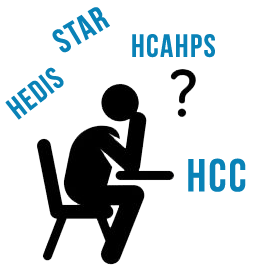Medical Risk Adjustment MRA Program

Guardian Health Services fully understands the critical importance and revenue implications for healthcare organizations of complete and accurate Medical Risk Adjustment and HCC documentation, coding, and reporting. Medical Risk Adjustment (MRA) has become, and will remain in the new value and risk-based environment, the calculus defining profit and loss, and solvency and insolvency. GHS has developed a comprehensive Medical Risk Adjustment (MRA) Program directed at 1) educating, monitoring, and evaluating the quality of outpatient documentation and coding of client participating providers/practices as they pertain to HCCs, and 2) a corresponding HCC medical risk adjustment process driven by the Guardian platform that ensures fully compliant clinical documentation, and reporting of specific HCC associated ICD-10 codes at point of service.
The goals of the GHS MRA Program are to provide clients and their respective network of providers/practices educational and Guardian platform driven strategies/interventions that:
- Elevates the level of understanding among clients of the importance of complete and accurate medical risk adjustment and HCC coding, documentation and reporting to their fiscal survival
- Provides a base for physicians and other qualified providers involved in an individual patient’s care to proactively monitoring and managing all ongoing chronic conditions.
- Facilitates the establishment of a complete and accurate picture of patients’ clinical acuity.
- Establishes a foundation from which to manage costs of their high-risk patients.
- Provides an avenue to validate and substantiate the cost of care, a critical component of the ever evolving mantra of value-based care
- Preserve and protect financial solvency through an adjustment of premium payments relative to patient risks.

Path 1
The GHS Medical Risk Adjustment Program has two distinct, albeit related paths that healthcare organizations can access. Path 1 is a didactic education path. In effort to elevate the level of understanding among client providers of the importance of accurate and timely medical risk adjustment HCC coding, documentation and reporting, the GHS MRA Program offers formal didactic face-to-face and webinar based training sessions to client providers. The training program is designed to:
- Provide an overview of the history and purpose of risk adjustment and the HCC model. Take the guesswork and confusion out of HCCs documentation process. Provide some basics on how risk scores are calculated and the impact on your practice. Identify top HCCs, with walk-through examples. Identify important tips from which to begin to master risk adjustment. Identify how HCC coding relates to the MACRA Quality Payment Program (MIPS and APMs) and other Medicare programs (e.g., Medicare Shared Savings Program).
- Take the guesswork and confusion out of HCCs documentation process.
- Identify top HCCs, with walk-through examples.
- Identify important tips from which to begin to master risk adjustment.
- Identify how HCC coding relates to the MACRA Quality Payment Program (MIPS and APMs) andother Medicare programs (e.g., Medicare Shared Savings Program).
Path 2
An internal risk adjustment validation audit path that takes direct aim at establishing a positive client posture toward a potential external MRA audit experience (e.g., CMS RADV audit).
This involves providing for clients mock RADV audit services that include:
- Targeted audit reviews utilizing pre-identified (sampled) medical records and submitted diagnosis codes.
- Full chart audit reviews utilizing the established RADV methodology
- Systematic identification of problem areas and solutions.
- Preparation of complete audit report with action recommendations to mitigate identified problems in medical risk adjustment coding, documentation, and reporting.
- Provision of client specific and appropriate guidelines for managing potential audit risks and reducing the potential financial impact of uncorrected errors.
